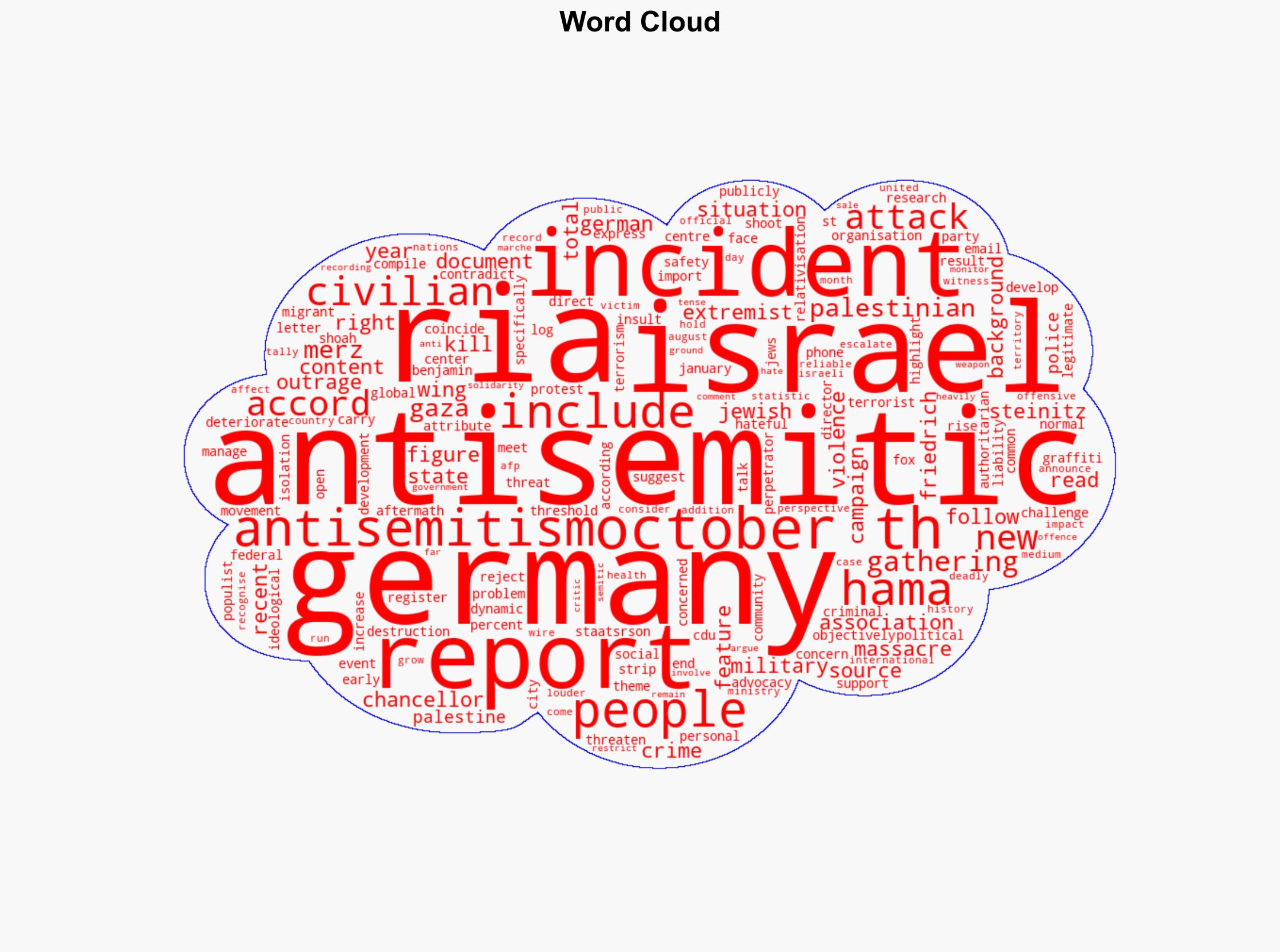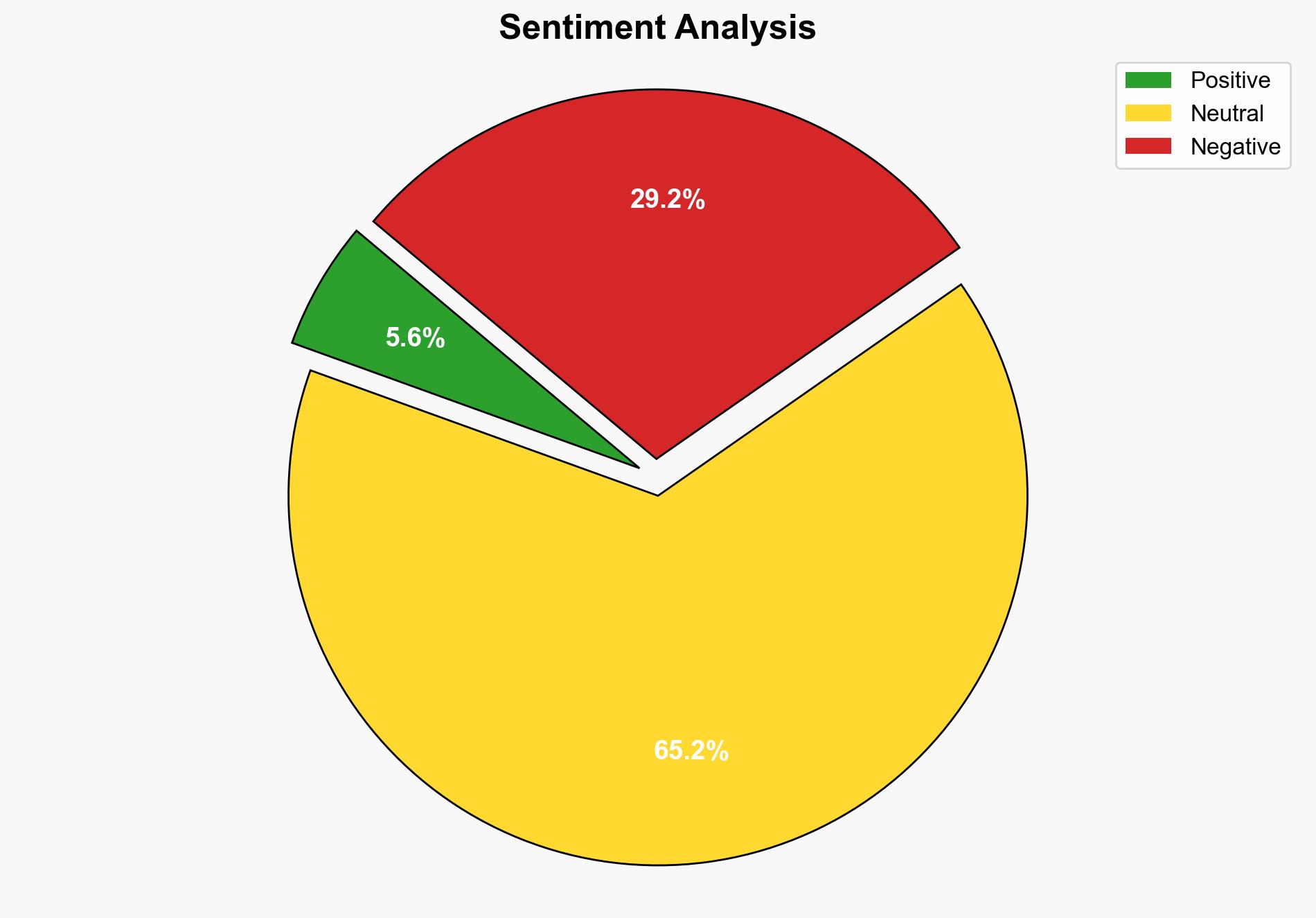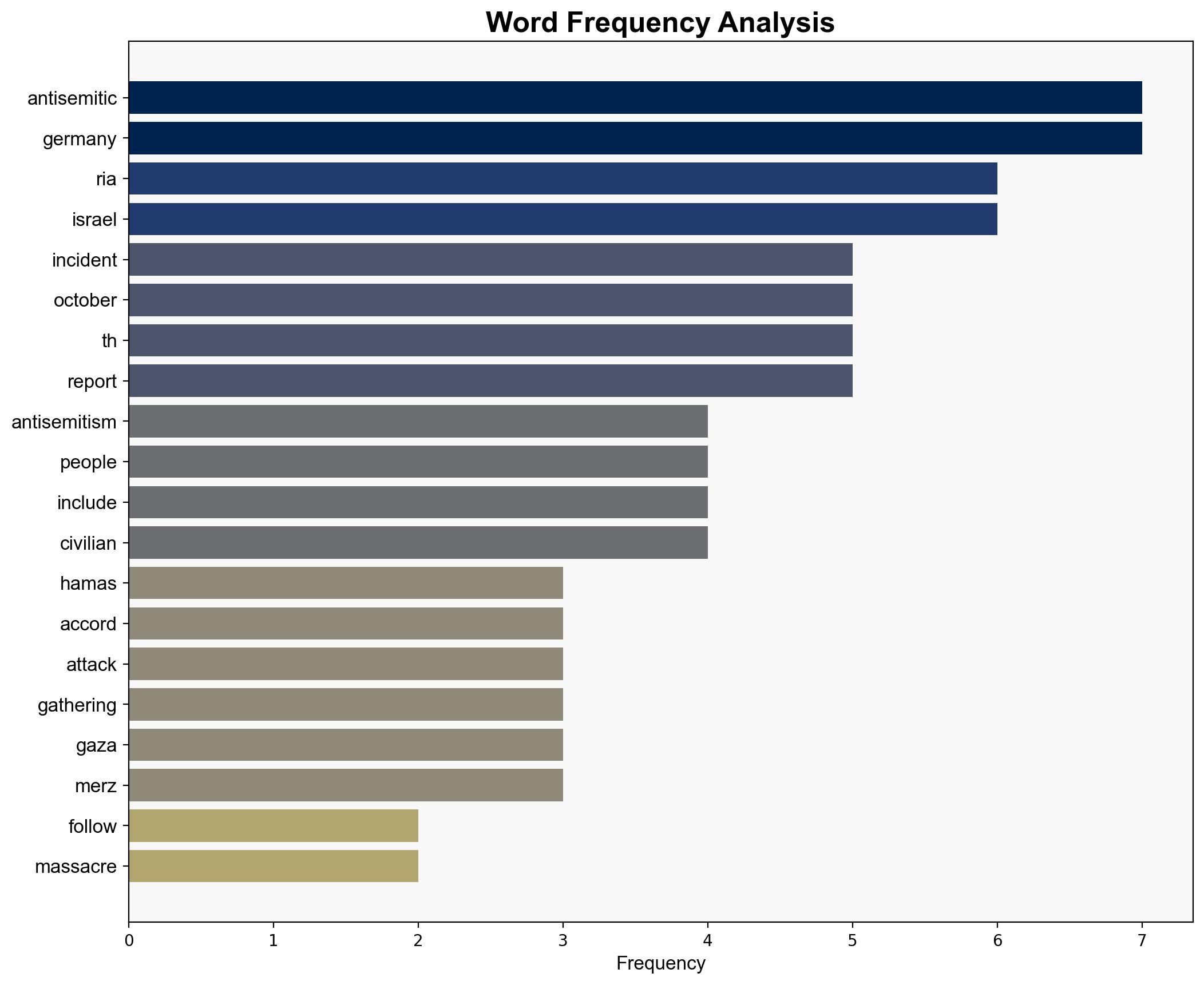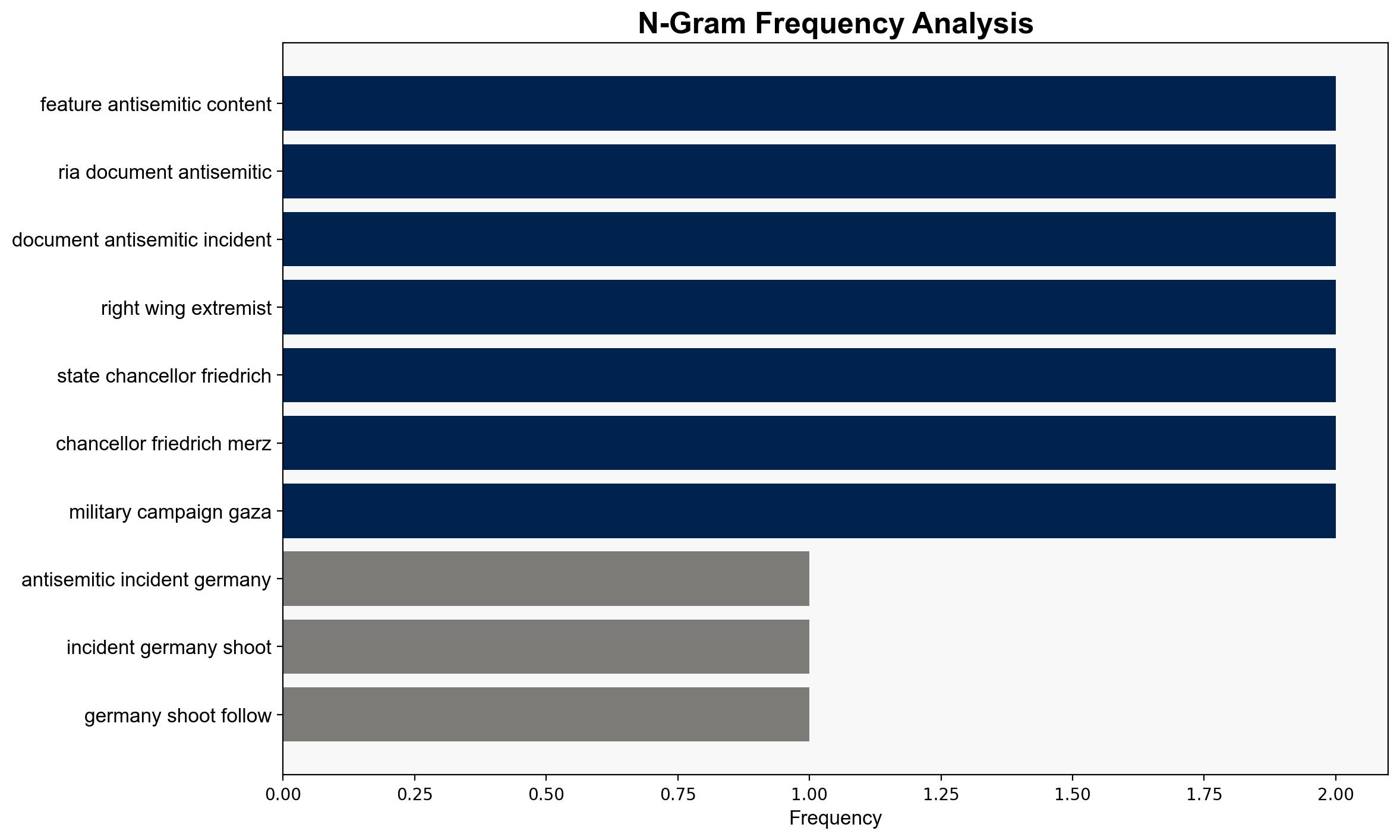Germany sees rising number of antisemitism reports – The Local Germany
Published on: 2025-10-06
Intelligence Report: Germany sees rising number of antisemitism reports – The Local Germany
1. BLUF (Bottom Line Up Front)
The increase in antisemitic incidents in Germany is likely influenced by both domestic and international factors. The most supported hypothesis suggests a correlation between global geopolitical tensions and local antisemitic incidents. Confidence in this hypothesis is moderate due to the complexity of factors involved. Recommended actions include enhancing community protection measures and fostering international dialogue to address underlying tensions.
2. Competing Hypotheses
1. **Hypothesis A**: The rise in antisemitic incidents is primarily driven by international events, particularly the conflict involving Hamas and Israel, which has heightened tensions and led to increased antisemitic expressions in Germany.
2. **Hypothesis B**: The increase in antisemitic incidents is largely due to domestic factors, including the rise of right-wing extremism and populist movements within Germany, which exploit geopolitical events to further their agendas.
Using the Analysis of Competing Hypotheses (ACH) 2.0, Hypothesis A is better supported due to the temporal correlation between the incidents and international events. However, Hypothesis B cannot be dismissed, as domestic political dynamics also play a significant role.
3. Key Assumptions and Red Flags
– **Assumptions**: It is assumed that international events directly influence domestic antisemitic incidents. Another assumption is that right-wing extremism is a significant driver of antisemitism in Germany.
– **Red Flags**: The potential for cognitive bias exists in attributing incidents solely to international events without considering local socio-political dynamics. Inconsistent data on the exact number of incidents and their motivations could skew analysis.
4. Implications and Strategic Risks
The rise in antisemitism poses risks to social cohesion and national security in Germany. It could lead to increased polarization and violence, impacting Germany’s international reputation and relations. The situation may also embolden extremist groups, leading to further destabilization.
5. Recommendations and Outlook
- Enhance intelligence sharing and cooperation with international partners to address the root causes of antisemitic incidents.
- Increase funding for community protection and education initiatives to counteract extremist narratives.
- Scenario Projections:
- **Best Case**: Successful international dialogue reduces tensions, leading to a decrease in antisemitic incidents.
- **Worst Case**: Escalation of geopolitical conflicts exacerbates domestic tensions, resulting in increased violence and societal division.
- **Most Likely**: Continued incidents with fluctuating intensity, requiring sustained monitoring and intervention.
6. Key Individuals and Entities
– Benjamin Steinitz: Managing Director of RIAS Association, providing insights into the nature of antisemitic incidents.
– Friedrich Merz: Chancellor, whose policies and statements may influence public perception and government response.
7. Thematic Tags
national security threats, cybersecurity, counter-terrorism, regional focus




